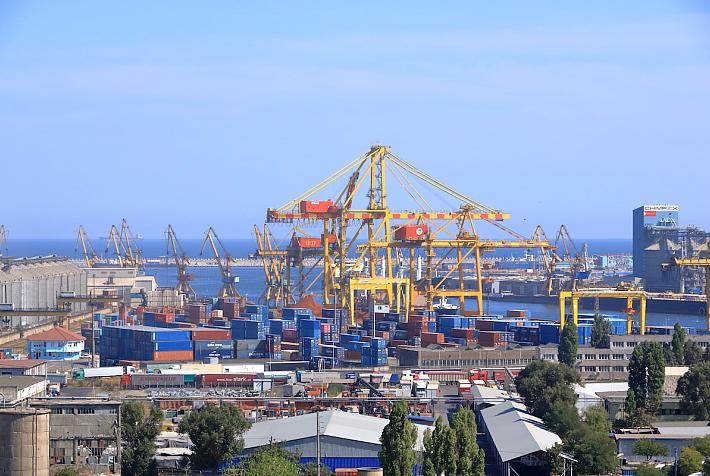Guest post: Lessons from the Electoral Year 2024 and where does Romania fit in the global context

Henry Páll Wulff, a German citizen living in Romania and former co-chair of Volt Romania political party, emphasizes how the disparate challenges and shifting dynamics in Romania underline the importance of understanding global trends.
The year 2024 brought a wave of significant elections worldwide, from the United States to Europe and beyond. Against this backdrop, Romania’s electoral year stood out not only for its unique developments—including the surprise victory of an independent candidate and the constitutional court’s annulment of the presidential election—but also for the broader parallels and divergences it shares with global democratic trends. Examining these patterns with nuance reveals critical lessons for strengthening democratic institutions in Romania and abroad.
Romania in the Spotlight: A Year of Electoral Shifts
Romania’s 2024 elections were marked by unexpected turns. The rise of an independent candidate—a figure largely outside the traditional political establishment—signalled public frustration with entrenched parties and widespread distrust in governance. This echoed trends seen globally, where outsider candidates gained traction as symbols of change.
However, the annulment of the presidential election by the constitutional court added a layer of complexity. Ostensibly aimed at safeguarding electoral integrity from alleged foreign interference, this decision was polarising. Critics viewed it as a troubling precedent that undermines the popular will, while supporters argued it demonstrated institutional vigilance. The controversy underscores the fragility of democratic processes in Romania, where political trust is often precarious.
Global Trends: A Mixed Picture for Democracy
Globally, 2024 was hailed as a defining year for elections, with notable shifts in both incumbency and ideological trajectories:
1. Incumbents Under Pressure
In countries like the United States and the United Kingdom, incumbent leaders faced resounding defeats. This trend aligned with Romania’s own rejection of establishment figures. Yet, as Thomas Carothers of the Carnegie Endowment for International Peace points out, such outcomes should not be oversimplified as a “bonfire of the incumbents.” Many leaders—from Taiwan to Finland—secured re-election, revealing a more nuanced pattern where incumbents thrive when perceived as competent and responsive.
2. The Rightward Shift: A European and U.S. Phenomenon
Far-right and centre-right parties gained ground in key elections in France, Austria, and the United States, amplifying fears of democratic backsliding. Yet this shift was not universal. In Latin America, leftist or centrist parties remained resilient, as seen in Mexico and Uruguay. Romania’s independent candidate, often perceived as an ultra-nationalist far-right figure, illustrates a clear shift toward nationalist and far-right positions within the country. This development contrasts with the resilience of leftist or centrist parties in Latin America while aligning more closely with the rightward shifts observed in Europe and the United States. The annulment of the presidential election has further highlighted this drift, exposing deeper undercurrents of polarisation and discontent with traditional political structures.
3. Democracy’s Health: Bright Spots and Shadows
While authoritarian regimes like Russia and Venezuela held tightly controlled elections, there were democratic victories to celebrate. Senegal’s peaceful transfer of power and Botswana’s milestone alternation of leadership were standout successes. Romania’s election annulment, however, serves as a cautionary tale of how even well-intentioned institutional interventions can erode public trust if not managed transparently.
Romanian Democracy in Context: Lessons and Risks
The parallels between Romania and other countries underscore shared challenges in modern democracies:
Public Disillusionment: As in much of Europe, Romanian voters expressed dissatisfaction with traditional parties, turning to alternatives they perceived as less tainted by corruption or inefficacy. This trend, while invigorating democratic competition, risks further fracturing political consensus.
Institutional Vulnerabilities: The annulment of the presidential election highlights the need for transparent mechanisms to handle disputes. Without this, perceptions of judicial overreach or political interference can deepen polarisation.
The Role of Civil Society: In many democracies, including Romania, civil society organisations have played a pivotal role in maintaining accountability and fostering civic engagement. Their continued support is essential for countering democratic erosion.
Paths to Strengthen Democratic Resilience
The complexity of 2024’s electoral outcomes calls for careful, context-sensitive approaches to fortify democracy. For Romania, key strategies include:
1. Enhancing Electoral Integrity: Greater transparency in electoral processes, coupled with robust protections against interference, can restore trust. Drawing on best practices from the European Union and international watchdogs like Transparency International may help mitigate future controversies.
2. Empowering Civic Education: Addressing disinformation and fostering critical thinking should be central to Romania’s educational reform. Programmes like those supported by the European Commission’s Democracy Action Plan can serve as models for engaging young citizens.
3. Strengthening Institutional Independence: Ensuring that courts and electoral bodies operate transparently and independently is vital. International organisations such as the Venice Commission provide valuable frameworks for aligning institutional practices with democratic norms.
4. Fostering Political Renewal: Supporting platforms for independent candidates and new parties can channel public dissatisfaction constructively. Encouraging innovation within the political system—while maintaining accountability—is key to sustaining voter engagement.
Conclusion: Clarity for a Complex World
The Romanian elections of 2024 are a microcosm of global democratic dynamics—a landscape marked by disillusionment, resilience, and complexity. By avoiding reductionist narratives and embracing nuance, Romania and its international partners can better navigate the challenges ahead. For policymakers, educators, and civil society leaders, the imperative is clear: to engage with democratic complexities thoughtfully, safeguarding institutions while fostering innovation and trust.
In a year that defies easy conclusions, clarity emerges not from simplification but from grappling with the richness of democracy’s ongoing story.
Guest post: Romanian Democracy at a Crossroads - Facing the Challenge of Far-Right Authoritarianism
---
*This is an opinion article and the views expressed here belong to the author. If you want to participate in the debate and share your views on political and social topics, or on things related to life in Romania in general, please write to us at newsroom@romania-insider.com.












